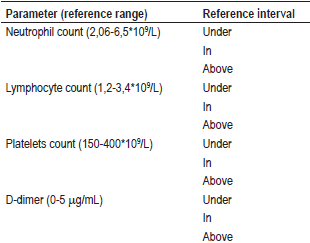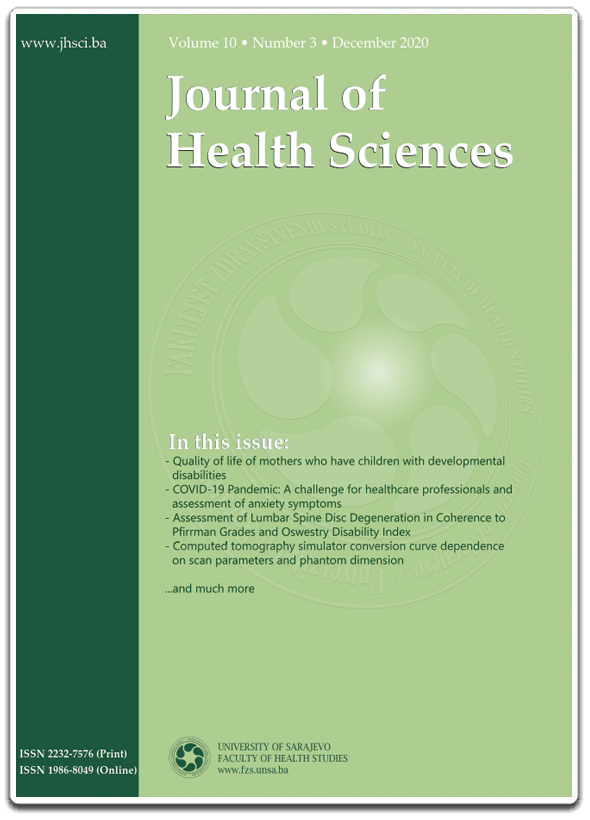Laboratory inflammatory parameters depending on the COVID-19 test result
DOI:
https://doi.org/10.17532/jhsci.2024.2629Keywords:
Inflammatory parameter, coronavirus disease 2019 test, coronavirus disease 2019 infectionAbstract
Introduction: The diagnosis of coronavirus disease 2019 (COVID-19) disease is necessary for the further treatment of patients with the present symptoms, and molecular diagnostics is considered the gold standard. However, it is already known that patients with symptoms of the disease can have a negative test due to various factors. The purpose of this study is to evaluate the laboratory parameters in patients with symptoms of COVID-19 infection who have both positive and negative test results.
Methods: The study included 101 samples from patients who tested positive for COVID-19 and 101 samples from patients who tested negative, both groups presenting symptoms of COVID-19. Data on the complete blood count, the absolute values of the differential blood count, and the D-dimer values were collected from the samples that were taken. Using blood count data, neutrophil-to-lymphocyte ratios, platelet-to-lymphocyte ratios, and systemic immune-inflammatory index (SII) were calculated.
Results: Based on the examination and research, a significant increase and change in the values of inflammatory indices and D-dimer were determined. In addition to the increase of these values above the reference value, a positive correlation was confirmed between the inflammation index value and the D-dimer value.
Conclusion: COVID-19-negative patients with characteristic symptoms of COVID-19 had higher values of lymphocytes and the determination of platelets and SII in these patients can be added to the diagnostic algorithm.
Downloads

Downloads
Published
Issue
Section
Categories
License
Copyright (c) 2024 Mirza Izmirlija, Berina Hasanefendić, Lejla Husejinbegović, Lajla Halilović, Lejla Altumbabić, Aleksandra Pašić, Selvedina Duškan, Belma Alihodžić-Dilberović

This work is licensed under a Creative Commons Attribution 4.0 International License.










